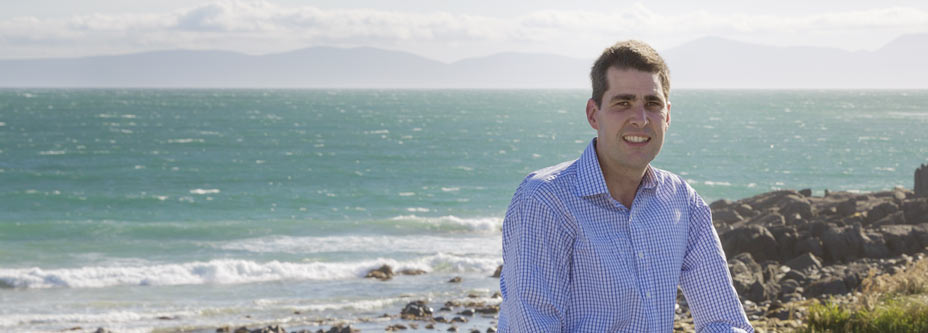
Bluff history buff
The Southland town of Bluff appears small and remote to many New Zealanders, but Dr Michael Stevens (Department of History) believes his historical case study of the port will re-shape thinking about New Zealand's economic development and race relations.
Stevens has received a Marsden Fund Fast-Start grant to research the history of Bluff between the years 1800 and 2000. He says his approach will challenge what he describes as “the insular approach that tends to shape thinking and writing about the Māori past”.
Stevens says Bluff was a key entry point for goods, people and ideas and, in return, dispatched primary products to points throughout the British Empire.
“Its relatively large and robust Kāi Tahu population was therefore shaped by living in a surprisingly multicultural setting and being a part of the British world superstructure.
“A close study of Bluff represents a unique opportunity to uncover a set of Māori responses to colonial capitalism and its long-term consequences,” Stevens argues.
“We know about late 19th-century landlessness and its resultant poverty, but the positive consequences of agriculture for Bluff-based Māori and the relationship between land and sea in the colonial economy are not well understood. I think there is a real sense in which southern Māori were not just victims of, but also participants in, the British Empire.”
A proud “Bluffie”, Stevens is descended from some of Bluff's oldest Māori and Pākehā families and grew up in the port town. He intends to weave the experiences of his and other such families into the port's wider history.
Photo: Karen Johnson